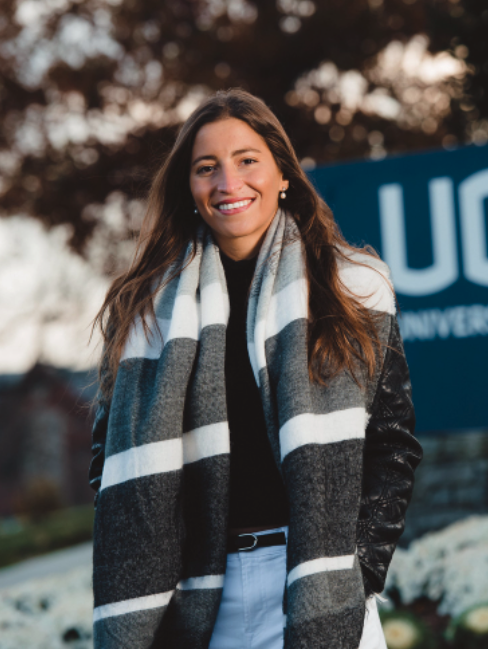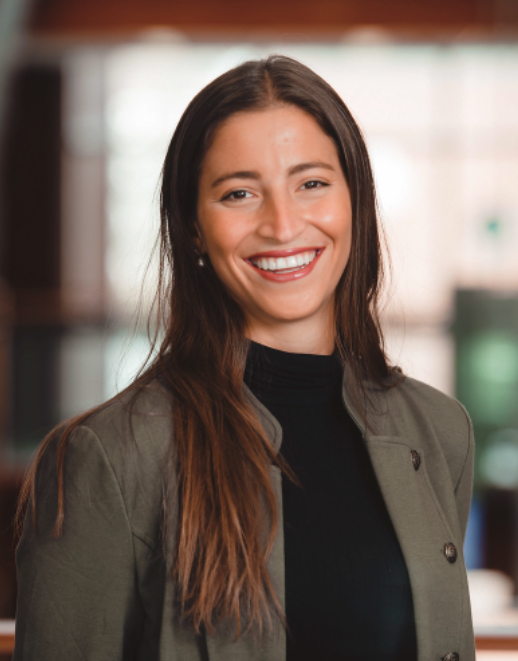
Karen Chammas wanted to quit judo many times. She started on the mat at the age of four, but as she got older, she could hear what people were saying about a girl trying to excel in martial arts. “Growing up,” she says, “the main reason I didn’t want to continue judo was because of the negative comments I used to get: ‘Why are you doing judo? Judo is for boys. Go to ballet. Go do piano.’ You’re going to have a muscular body. You’re not going to find a boyfriend.’”
Thankfully, Karen’s mom supported her and wouldn’t allow her to quit, relying for years on the excuse that she had “already paid” for months’ worth of lessons. “Thank god my parents pushed me into sports. I owe them everything because they literally pushed me to the mat. Judo was the tool that helped me develop my character.”
In Lebanon, women grapple with many obstacles to participate in sports. The status of Lebanese women depends on religious affiliation, but there are some general trends. Overall, child marriage, sexual harassment, and domestic violence persist as problems, with the law not doing enough to protect women. The International Finance Corporation reports that in 2016, Lebanese women represented just 4.4% of the country’s senior executives; in 2019, women only represented 22% of the total workforce and a mere 5.2% of the Lebanese parliament.

On her path to becoming a judo champion, Karen found that potential sponsors and government programs favored team sports rather than individual competitions. This, along with the fact that basketball dominates Lebanon’s media landscape, made it difficult to be noticed, but Karen persisted. In 2010, she participated in the Youth Olympics, and in 2012 she became the first Lebanese judoka to qualify for the Olympics in London. “The Olympics were the best experience of my life,” she enthuses. “I loved being in the village and surrounded by the top athletes in the world.” In her judo career, Karen was undefeated on Lebanon’s mats from the age of six, making her the Lebanese Champion for 20 consecutive years (2000-2019). “Judo means everything to me,” she says. “It is my life, my passion. Every judo memory is engraved in my heart.”
Karen’s love and appreciation for sports goes deeper than her lifelong commitment to judo. She also played basketball at the Lebanese American University and the Lebanese National Team. “Sports are kind of my escape,” she says. “Working out makes me happy, helps me release stress, and gives me the satisfaction of developing my fitness and skills. It also improves my mood and boosts my self confidence. I feel I adopted a ‘team mindset’ in the workplace and in social situations through basketball, and my sports career taught me to hustle—on every ball and every fight.” In 2019, Karen led Lebanon’s National Basketball Team to a first place finish at the West Asia Championships in Jordan.
Throughout Karen’s time spent playing two different sports at the national level, she also prioritized her education. She earned a Bachelor of Business Administration from the Lebanese American University in 2014 and a Master of Business Administration in Sports Management from Barcelona’s EU Business School in 2017. She then took a position at the Lebanese American University as the Athletics Coordinator, where she managed the University’s sports facilities and organized sporting events. In this role, she hoped to expand the impact of current programs and grow access for women in sports across Lebanon.

In 2019, Karen was invited to participate in the Global Sports Mentoring Program (GSMP). When she left in October of that year, Lebanon was in the midst of a deepening economic crisis, which only got worse after her departure. Just seven days later, as the government announced a slew of new taxes, the country erupted into protests. The fervency of this unrest was fueled by the crises there that have pushed many into poverty and made worse by the excessive force used by state security forces. It was a difficult time to be away from home, but Karen made the best of her time on the campus of the University of Connecticut, where she teamed up with Dr. Laura Burton, Professor of Sport Management. “I can qualify this experience as #2 in my life, after the Olympic Games,” Karen says. “It was unforgettable, and it opened my eyes.”
Plugging into the global community of the GSMP was transformative for Karen. “The GSMP not only impacted me in terms of public relations and networking,” she says, “I learned to initiate conversations with people I’d never met before. It also taught me never to underestimate myself, and to forget my insecurities.” The stories about the program were true. The strong bonds she developed with the GSMP delegates inspired her to do everything she could for the girls and women in Lebanon who needed her help the most. “Sport is a tool for social change and peace making. It unites people and brings them together regardless of sex, race, religion, nationality, etc,” she says. “Empowering women is key in the development of a society. Making sports accessible to both sexes and providing equal opportunities will definitely make the world a better one.”
Karen returned home from the GSMP empowered. She felt strong, confident, willing to fight and break barriers to reach her objectives, and ready to give back to women and girls who need someone to inspire them and give them strength. She had developed an action plan to start her own judo academy in Lebanon, but back home, she found that everything was upside down. With jobs disappearing and the economy worsening, sports leagues across the country were shutting down. Karen had not spent twenty years as a champion only to quit on her dream now, so she made the only move available to her—she pivoted.
With Lebanon’s sports landscape ground to a halt, Karen decided to take her skills and her understanding of sports as an empowerment tool to Saudi Arabia, accepting a coaching position at its Al Wehda Club. “Women’s rights in Saudi Arabia have been severely limited in comparison to the rights of women in many of its neighboring countries due to the strict interpretation and application of Sharia law,” says Karen. “However, the Kingdom is taking a huge step toward fulfilling its Vision 2030 reform plans in empowering women.” Al Wehda will be the first club to introduce women’s sports, and Karen will be using basketball and judo to help challenge gender norms, emphasizing the values of teamwork, self-reliance and resilience.
“I never thought I would be leaving my job at the Lebanese American University to coach,” says Karen, “but the GSMP made me realize that coaching is about empowering, inspiring, building a strong and resilient character. It’s not just about enhancing health, training, competing, winning, losing. It’s about teaching morality, integrity, ambition, and creating a more peaceful society.” With her determination and perseverance, there’s no doubt Karen will succeed in anything she sets her mind to.